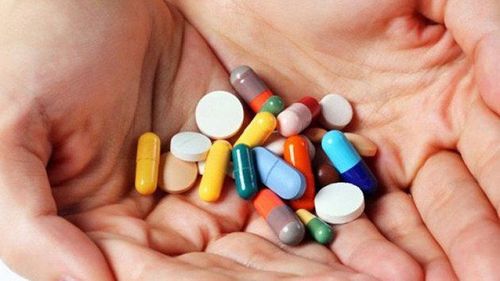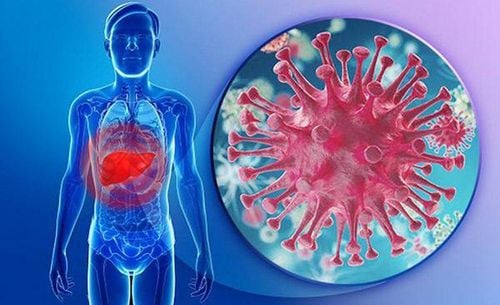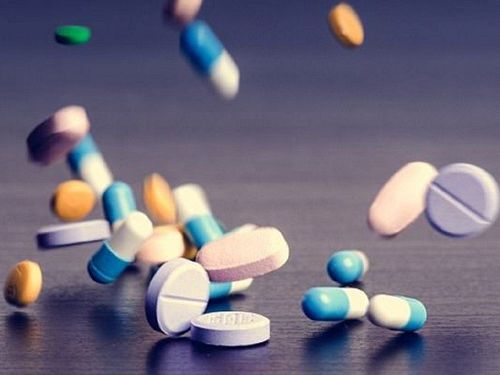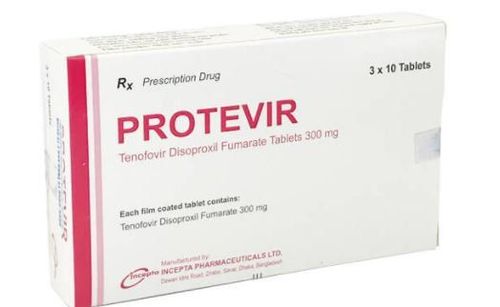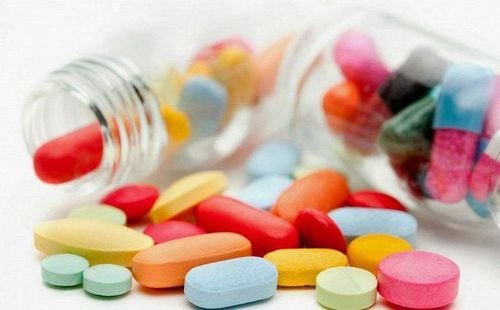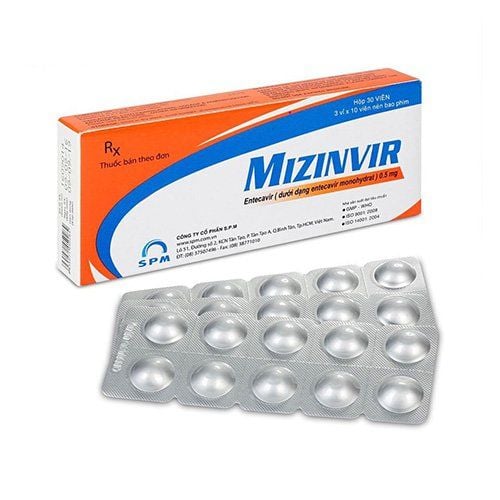This is an automatically translated article.
People who have tested positive for hepatitis B virus for more than 6 months and have evidence of liver damage will be considered for treatment with hepatitis B antiviral drugs. In addition to medication, patients should also be monitored regularly. Know how to take care of your liver as well as your general health, in order to help the drug be more effective, and to limit further damage to the liver.
1. Learn about hepatitis B antiviral drug treatment
People with chronic hepatitis B virus infection can still have a long and healthy life like everyone else if they are treated aggressively in the first place. Accordingly, antiviral drugs for hepatitis B will be indicated when the patient has evidence of carrying the hepatitis B virus for more than 6 months and has liver damage caused by the virus.Current hepatitis B antivirals are divided into two main groups:
Immunomodulators: These are interferon drugs that boost the immune system to help clear the hepatitis B virus. They are used as an injection, similar to how insulin is given to people with diabetes, for 6 months to 1 year. Antiviral drugs: These are drugs that stop or slow the hepatitis B virus from reproducing, reducing the inflammatory response and damage to the liver parenchyma. These drugs are taken as anti-inflammatory drugs taken by mouth once a day for at least 1 year and often longer or can last a lifetime. Regardless of whether or not you are eligible to start treatment or what type of treatment, it is very important that you regularly schedule visits to your liver specialist. The best time for a follow-up is every 6 months but some people may need to be checked more often or even once a year. During these visits, your doctor will assess your general health and liver function.
Besides, you also need to do some blood tests, viral load measurement, liver enzyme level measurement, liver cancer risk screening and other imaging facilities such as ultrasound, FibroScan or CT scan . The goal of these check-ups is to make sure that you are completely healthy, that the hepatitis B antiviral drugs are effective in controlling them, and that liver complications can be detected early for timely intervention.
2. Infection prevention to protect your loved ones
It is important to make sure to prevent transmission of the hepatitis B virus to your loved ones.The first step is to screen for the possibility of infection and to actively vaccinate family members and partners with hepatitis B. The hepatitis B virus can be spread through direct blood-to-blood contact, through unprotected sex, and contact with infected bodily fluids. So, the next step to protect these loved ones, you need to follow these guidelines:
Avoid unprotected sex. Latex or polyurethane condoms should be used. Do not share personal items such as razors, needles, nail clippers, toothbrushes or earrings, body jewelry - anything that may have traces of blood. Do not come into direct contact with cuts and open sores on the skin and mucous membranes. Clean blood stains with a solution of bleach and disinfectant with gloved hands. Besides, you need to keep in mind that hepatitis B is not spread by casual contact such as hugging, kissing, coughing, sneezing or sharing food. At the same time, you can reduce your anxiety about contracting the hepatitis B virus when your loved ones are protected by the vaccine. However, if you still want to confirm that your family members are definitely protected, you can have their blood anti-HBs tested 1 to 2 months after the injection. final.
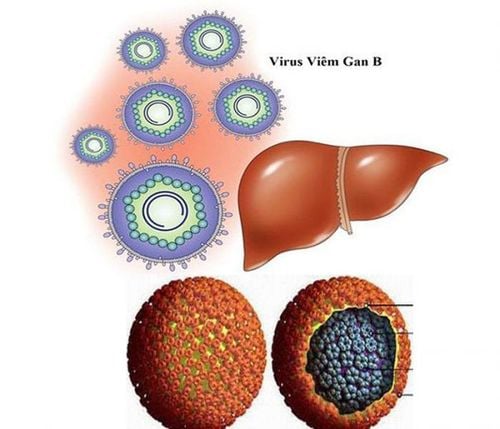
Virus viêm gan B có thể lây qua nhiều con đường
3. How can I keep my liver healthy while taking hepatitis B antiviral drugs?
People infected with the virus that causes chronic hepatitis B without any evidence of liver damage are only healthy carriers and may not need drug treatment. However, they also need to follow measures to protect the liver and general health before the virus actually attacks the liver.Also, patients taking hepatitis B antivirals should also follow these guidelines to reduce other risk factors for further liver damage:
Schedule regular visits with your doctor a hepatologist for regular check-ups of your general health and liver and biliary status. Hepatitis A vaccine protects the liver from another virus that also has an affinity for the liver. Avoid drinking alcohol and smoking as both will further damage the liver as the liver is already damaged by the hepatitis B virus. Always consult your hepatologist before starting any herbal or complementary medicine. any vitamin supplements or functional foods. That's because some drugs can interact with hepatitis B antivirals or even cause further liver damage. Talk to your pharmacist about any over-the-counter medicines, even acetaminophen or paracetamol, before taking them to make sure they are safe for your liver as these drugs can be processed by the liver. Avoid inhaling paint odors, paint thinners, glues, household cleaning products, nail polish removers, and other potentially toxic chemicals that can damage the liver. Eat a healthy diet with fruits, whole grains, fish, lean meats, and plenty of vegetables. Cruciferous vegetables, cabbage, broccoli, and cauliflower have been shown to help protect the liver against environmental chemicals. Limit foods and drinks with added sugars including sodas, fruit juices, desserts, packaged snacks, and other foods that contain sugar. Limit foods containing saturated fats such as animal fats and foods fried in oil. Avoid eating raw or undercooked shellfish such as clams, mussels, scallops, and oysters as they can be contaminated with bacteria called Vibrio Vulnificus, which is very toxic to the liver. Check for signs of mold on nuts, such as corn, peanuts, rice, millet... before use. Mold is easy to grow on foods that are stored in wet conditions and are not properly sealed. If mold is present, food can be contaminated with aflatoxins, a toxin that can cause liver cancer. Avoid stress, reduce anxiety by exercising regularly and arrange a reasonable rest time. Finally, keep in mind everything you eat, drink, breathe or absorb through your skin as it will all be filtered through the liver. So protecting your liver is protecting your health.
4. What herbs can supplement the liver?
The fact is that many people are interested in using herbs or other supplements to strengthen the immune system and support the liver.The problem is that there is no evidence base, factual evidence for these herbs or supplements. What's more, following certain herbal remedies can interact with prescription antiviral medications used to treat hepatitis B. These herbs can even further damage the liver. your. Meanwhile, most of the establishments producing herbs and functional foods are small units, without papers proving hygiene and safety in production and product quality. Not guaranteed.
Therefore, do not trust and listen to unreliable sources of information about herbs and drugs that support the liver. It is best when taking any medicine, even those for other conditions, to consult a hepatologist, to prevent the risk of damage to the liver.
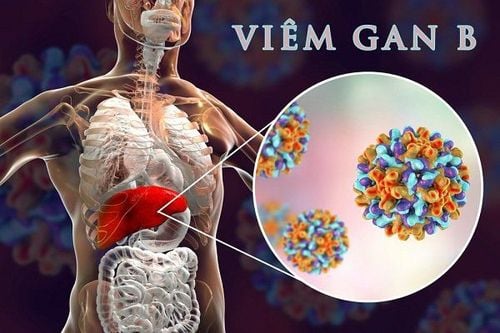
Không nên tự ý sử dụng các loại thảo dược điều trị viêm gan B
5. Can I donate blood if I am being treated for hepatitis B?
Donating blood will not be accepted if you have been exposed to hepatitis B, even if you have recovered from an acute infection.On the other hand, blood units collected after donation are thoroughly tested before being sent to the blood bank. If any abnormality is detected in general, a positive hepatitis B test in particular, this blood unit will be quickly discarded and destroyed.
In summary, the hepatitis B status has so far been controlled with antiretroviral drugs, some cases still require lifelong antiretroviral therapy. In addition, in the process of taking the drug, the patient should note some of the above, both to help the drug achieve high efficiency, and to limit the risk of other damage to the liver and to prevent infection to loved ones.
Currently, Vinmec International General Hospital has Hepatobiliary Screening packages, which help detect Hepatitis Virus at an early stage even when there are no symptoms. In addition, the comprehensive hepatobiliary screening package helps customers:
Evaluate the liver's ability to work through liver enzyme tests; Evaluation of bile function; vascular nutrition; Early screening for liver cancer; Perform tests such as Total blood cell analysis, blood clotting ability, screening for hepatitis B, C Assessment of liver and biliary status through ultrasound images and diseases that are at risk of affecting liver disease / liver disease. more severe liver disease In-depth analysis of parameters to evaluate hepatobiliary function through laboratory and subclinical; the risk of affecting the liver and early screening for hepatobiliary cancer
Please dial HOTLINE for more information or register for an appointment HERE. Download MyVinmec app to make appointments faster and to manage your bookings easily.
Reference source: everydayhealth.com/webmd.com/hepb.org/



